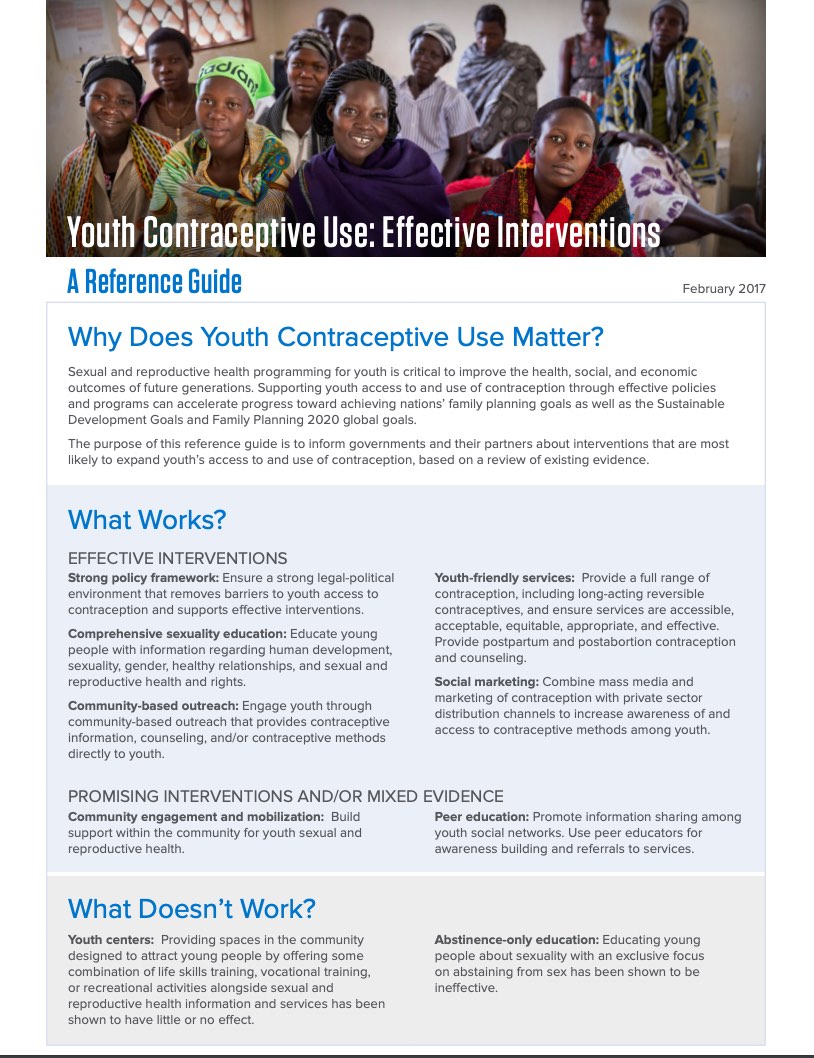
Youth Contraceptive Use: A Reference Guide of Effective Interventions
Sexual and reproductive health (SRH) programming for married and unmarried youth ages 15 to 24 is critical to improve the health, social, and economic outcomes of future generations. However, youth face many more barriers to accessing and using contraception than older people, including provider refusal, restrictive laws or policies, limited contraceptive options, stigma, and sociocultural pressures to have children early. Despite growing commitment to the rights of youth to access contraceptive services, governments and their partners lack clear guidance on supporting interventions that ensure their commitments are realized.
Based on a review of existing evidence, the guide summarizes policy and program interventions that have proven to be effective in increasing access to and use of contraception among youth, as well as those that are promising but have inconclusive evidence and those shown to be ineffective.
WHAT WORKS?
Effective Interventions
- Strong policy framework.
- Comprehensive sexuality education.
- Community-based outreach.
- Youth-friendly services.
- Social marketing.
Promising Interventions and/or Mixed Evidence
- Community engagement and mobilization.
- Peer education.
WHAT DOESN’T WORK?
Ineffective Interventions
- Youth centers.
- Abstinence-only education.

 ">
">